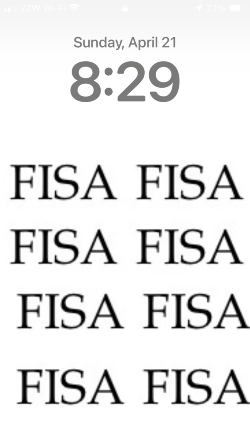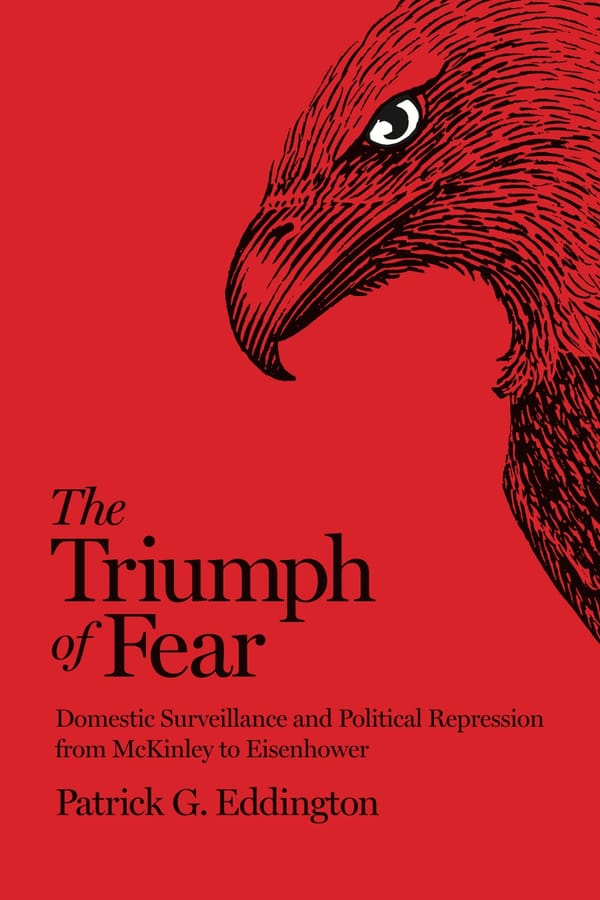Radical FISA Expansion Clears Congress, Will Become Law
A more than year-long battle over America's most controversial and abused surveillance power ended in total victory for Surveillance State defenders. To reverse the damage, civil libertarians must build an electoral capacity to eject from Congress those who subvert the Bill of Rights.

A more than year-long battle over America's most controversial and abused surveillance power ended in total victory for Surveillance State defenders. To reverse the damage, civil libertarians must build an electoral capacity to eject from Congress those who subvert the Bill of Rights
Just after midnight on April 20 and by a 60-34 margin, the Senate passed H.R. 7888, a sweepingly expansive, two year reauthorization of Title VII of the Foreign Intelligence Surveillance Act (FISA), and with it the Section 702 warrantless electronic surveillance program.
Multiple amendments designed to remove or at least rollback the most egregious elements of the House-passed bill--especially a provision allowing the National Security Agency (NSA) and Federal Bureau of Investigation (FBI) to target data centers and other businesses handling communications and internet traffic--were all defeated.
The Senate's action cleared the bill for President Biden's signature, which occurred on Saturday, April 20.
H.R. 7888's enactment ensures that federal law enforcement and intelligence elements will be able to continue to buy data on Americans without a warrant, and to dramatically expand the FISA Section 702 program’s reach into data centers, cloud storage providers, and many other businesses. The ability of FBI agents to search the stored communications of Americans captured under Section 702 without a probable cause-based warrant also remains intact.
H.R. 7888 represents the most dangerous expansion of legally sanctioned federal electronic surveillance powers since the passage of the PATRIOT Act in October 2001. In terms of Americans’ digital communications, it will effectively render their Fourth Amendment rights protecting those communications a dead letter.
For me, one of the more comically cynical moments of the debate occurred when Senate Select Committee on Intelligence (SSCI) Chairman Mark Warner (D-VA) waived around a letter from Attorney General Merrick Garland claiming that the data center access provision in the bill would not result in increased U.S. Person rights violations. It reminded me of Britain's then-Prime Minister Neville Chamberlain's now infamous Munich agreement statement, waving around an agreement signed by Nazi leader Adolph Hitler in late September 1938 pledging to not invade any other countries in Europe after annexing the Czech Sudetenland. Bad actors with a history of breaking promises not to do terrible things tend to be reliably recidivist.
So, can any of this anti-constitutional mass surveillance be reversed?
That will depend on whether or not America's privacy and civil liberties community uses the next two years--the amount of time FISA Section 702 was extended under H.R. 7888--to completely shift its advocacy focus from a nonprofit model to an electoral one, via a political action committee (PAC) or similar vehicle.
What Bill of Rights advocates need to re-learn is that in politics, the only thing that matters is power: either you have it, or you don't. If you have it, you get to do things. If you don't, more often than not things get done to you.
Twice in less than a decade (see this about the prior episode in 2015), the largely DC-centric privacy and civil liberties community's efforts to combat out-of-control federal surveillance programs have been defeated by a combination of the following:
1) Taxpayer financed lobbyists (i.e., Congressional affairs and public relations staffs) and political appointees at the FBI, NSA, Justice Department, and the Office of the Director of National Intelligence (ODNI). These individuals engage in a combination of fear-mongering and outright deception with Congress and the public about the utility of these programs on the one hand while minimizing the frequency, scale, and impact of serial constitutional rights violations under those programs on the other.
2) Pro-surveillance House and Senate members and their staffs, usually on the House and Senate Intelligence Committees, as well as the House and Senate leadership, and all on a bipartisan basis. Federal law enforcement and Intelligence Community officials go out of their way to ingratiate themselves with their ostensible Congressional overseers--providing on-demand classified briefings, tours of or meetings at secret facilities (both here and abroad), and information not generally available to House or Senate members not on the intelligence committees. The effect is organizational capture--in this case, the FBI, NSA, CIA, and ODNI effectively calling the shots on what will or will not become the law designed to keep their activities within constitutional bounds.
3) Federal judges who have in multiple cases ruled surveillance programs like the FISA Section 702 program to be constitutional despite the fact the communications of Americans are seized en masse and without a warrant--effectively ignoring the Fourth Amendment's absolute requirement for a warrant to seize and search American's data.
Because there are some potential constitutional issues with an outright ban on federal agencies/departments lobbying (i.e., communicating) with Congress, I'm going to set that one aside for the moment. Fixing the Congress problem is the first step in fixing the problem with federal courts on this issue as well.
In a political environment where the balance of power in the House of Representatives comes down to perhaps no more than 30 truly competitive seats, the opportunity for a liberty-centric PAC to influence the composition of the House is real. And with respect to federal judicial nominations, a liberty-focused PAC could play a critical role in the Senate confirmation process by running ads opposed to judicial nominees with anti-Bill of Rights track records.
Privacy and civil liberties issues still resonate with the public. For Bill of Rights defenders, the first challenge is identifying a sufficient number of Americans outraged about surveillance abuses and related political repression who are willing to donate money to an organization dedicated to 1) electorally punishing House members who subvert our rights and supporting those who defend them, as well as 2) engaging in judicial confirmation fights to seat pro-liberty judges. Finding such donors is possible. All that's required is for a core group of civil liberties advocates from across the political spectrum to come together to make it happen.
Thanks for reading the Sentinel. If you're not currently a subscriber, please consider becoming one as doing so is free through 2024 and it's an easy way to show your support for my work.





